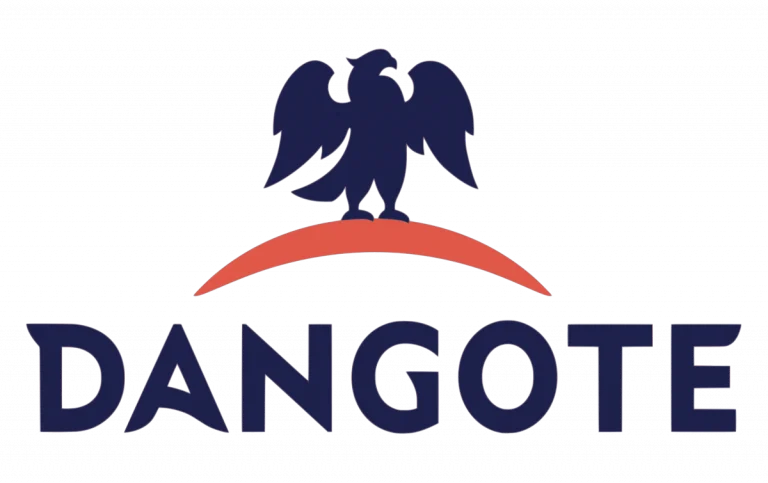Business
PoS Transactions Jump To N8tn – NIBSS Report

The value of Point of Sale transactions in Nigeria has jumped 39 per cent to N8.03tn in 2022, according to data obtained from the Nigeria Interbank Settlement System.
The data showed that the aggregate PoS transactions between July 2020 and July 2021 were estimated at N5.77tn. However, between July 2021 and July 2022, the volume of transactions increased to N8.03tn, indicating a 39.16 per cent increase over the period.
PoS transactions increased from a total volume of 921.19 million between July 2020 and July 2021, to 1.20 billion from July 2021 to July 2022.
READ ALSO: Inflation Pushing Truckers Out Of Business, Group Laments
According to the NIBSS, July 2022 alone recorded the highest number of PoS transactions registered at 2.067 million in just one month.
According to the Deputy President of the Lagos Chamber of Commerce and Industry (LCCI), Gabriel Idahosa, the primary factor responsible for the recorded value of PoS transactions was an increase in the supply of services and a strong market.
“First, the central bank approves payment services such as Momo Money from MTN and Smart Cash from Airtel.”
He noted that the rise of fintech companies and the use of technology for awareness of this payment method were also major propellers.
“Then, you have a lot more fintech companies advertising payment services. Organisations are allowing payments on their platform. Now, power companies allow payment of electricity bills over PoS, and even some government services let you do that. All the schools, both primary and secondary, allow you to use PoS too. Also, the banks have been very aggressive in promoting their PoS services.”
Idahosa noted that the culture of cashless policy was also fast becoming a trend largely due to the lingering impact of the COVID-19 period.
“The culture of non-cash payment is catching up very fast. Even for the illiterate that ordinarily cannot use the service, the increasing offer of USSD service which you can do over your phone means that many people with cellphones can now make payment.
“These were initially triggered by COVID-19 when people could not easily walk to the banks to cash. So, during that time, banks were partially closed for some time, and it became difficult. Those people who were not familiar with electronic payment options now began to learn it. And now, it is the preferred mode of payment.”
Commenting on the increase, an economist, Bismarck Rewane, said that the increment was influenced by technological advancement.
“There’s a shift from cash and cheques to electronic payment. That’s why there has been an increase. There is broadband penetration, more mobile phone subscribers, and Nigerians are becoming more internet-savvy. So, they are making payments electronically rather than going by brick and mortar.”
READ ALSO: Why I’ll Not Resign, Wike, Others Mere Rant Of ‘Children’ – Ayu
A Senior Lecturer at Pan Atlantic University, Dr. Olusegun Vincent, further explained that the increase was inevitable due to inflation.
“Inflation is part of the surge. Prices of goods and services have gone up. Another major aspect is the issue of insecurity. People are being very careful. That’s why they adopt PoS because of the ease of payments. You will discover that if you don’t use PoS, you can’t get money. Most Automated Teller Machines are often running out of funds. So, nobody wants to waste time and they go to the merchant.”
He added that the national acceptance of electronic payment was a revolution, and the central bank never foresaw this amount of adoption.
PUNCH
Business
NNPCL Announces Restoration Of Escravos-Lagos Pipeline

The Nigerian National Petroleum Company Limited (NNPCL) has announced the complete restoration of the Escravos-Lagos Pipeline System (ELPS) in Warri, Delta State, following the recent explosion on the asset.
The chief corporate communications officer (CCCO) of the nation’s oil company, Andy Odeh, in a statement, said that the pipeline is fully operational, reiterating the company’s resilience and commitment to energy security.
“NNPC Limited is pleased to announce the successful restoration of the Escravos-Lagos Pipeline System (ELPS) in Warri, Delta State.
READ ALSO:Fuel Price Cut: NNPCL GCEO Ojulari Reveals Biggest Beneficiaries
“Following the unexpected explosion on December 10, 2025, we immediately activated our emergency response, deployed coordinated containment measures, and worked tirelessly with multidisciplinary teams to ensure the damaged section was repaired, pressure-tested, and safely recommissioned.
“Today, the pipeline is fully operational, reaffirming our resilience and commitment to energy security. This achievement was made possible through the unwavering support of our host communities, the guidance of regulators, the vigilance of security agencies, and the dedication of our partners and staff.
“Together, we turned a challenging moment into a success story, restoring operations in record time while upholding the highest standards of safety and environmental stewardship.
“As we move forward, NNPC Limited remains steadfast in its pledge to protect our environment, safeguard our communities, and maintain the integrity and reliability of our assets. Thank you for your trust as we continue to power progress for Nigeria and beyond,” the statement read.
Business
Dangote Unveils 10-day Credit Facility For Petrol Station Owners

The Dangote Group has announced a 10-day credit facility backed by a bank guarantee for petrol station owners and dealers, alongside free direct delivery and other incentives, as part of a new supply arrangement.
The company disclosed this in a statement posted on its official X handle on Tuesday, inviting petrol station operators across the country to register to benefit from the offer.
According to the statement, participating dealers will enjoy “a 10-day credit facility backed by a bank guarantee,” with a minimum order requirement of 5,000 litres.
“Our free direct delivery service will commence soon,” the group said, adding that the offer is open to “all petrol station owners and dealers.”
READ ALSO:Dangote Sugar Announces South New CEO
The Dangote Group further called on operators to register their stations to access the supply arrangement.
“Register your petrol stations today to benefit from our competitive gantry price,” the statement read.
The company also disclosed that petrol supplied under the arrangement will be sold at a gantry price of ₦699 per litre.
For enquiries, the group provided the following contact numbers: 0802-347-0470, 0809-324-7070, 0809-324-7071 and 0203.
READ ALSO:Dangote Refinery Dispute: PENGASSAN Suspends Strike After FG Intervention
The announcement follows a recent petrol price adjustment by the Dangote Petroleum Refinery.
The PUNCH earlier reported that the refinery reduced its ex-depot petrol price from ₦828 to ₦699 per litre, representing a ₦129 cut or a 15.58 per cent reduction.
An official of the refinery, who spoke to PUNCH Online on condition of anonymity, confirmed the adjustment, saying, “The refinery has reduced petrol gantry price to ₦699 per litre.”
The new price reportedly took effect on December 11, 2025, marking the 20th petrol price adjustment announced by the refinery this year.
Business
JUST IN: Otedola Sells Shares In Geregu Power For N1trn

Billionaire businessman, Femi Otedola, has sold his majority stake in Geregu Power Plc for N1.088 trillion in a deal financed by a consortium of banks led by Zenith Bank Plc.
The Nigerian Exchange, NGX, made this announcement on Monday.
Otedola’s Amperion Power Distribution Company Ltd reportedly held nearly 80 percent of the power generating company.
READ ALSO:N200b Agric Credit Dispute: Appeal Court Slams NAIC, Upholds First Bank Victory
With this new development, Otedola, Chairman of First Holdco Ltd, parent company of First Bank of Nigeria Plc, will reportedly now concentrate on expanding his interest in the Nigerian banking sector, although he still retains some shares in Geregu.
Otedola is said to currently own 17.01 percent of First Bank — its single largest shareholder since the bank was established in 1894.

 News5 days ago
News5 days agoPHOTOS: SGF George Akume Weds Ooni’s Ex-Queen

 News3 days ago
News3 days agoEx-Edo Gov Obaseki Reacts As His Cousin Is Beaten, Stripped

 News2 days ago
News2 days agoBREAKING: Anthony Joshua Involved In Road Accident

 Politics2 days ago
Politics2 days agoWike Speaks On Defecting To APC

 Politics2 days ago
Politics2 days agoJUST IN: INEC Excludes PDP From Ekiti Governorship Election

 Politics2 days ago
Politics2 days agoYou’re Not 001 – Wike Rubbishes Claims Of Fubara Being APC Leader In Rivers

 Metro3 days ago
Metro3 days agoObaseki Beaten, Stripped In Edo

 News2 days ago
News2 days agoNAF Neutralizes Bandits At Turba Hill, Kachalla Dogo Sule Camps

 Entertainment5 days ago
Entertainment5 days agoI’ve Stopped Impregnating Women Anyhow – 2Baba

 Politics2 days ago
Politics2 days agoGo To Hell, You Didn’t Pay My School Fees – Wike Hits Seyi Makinde


























